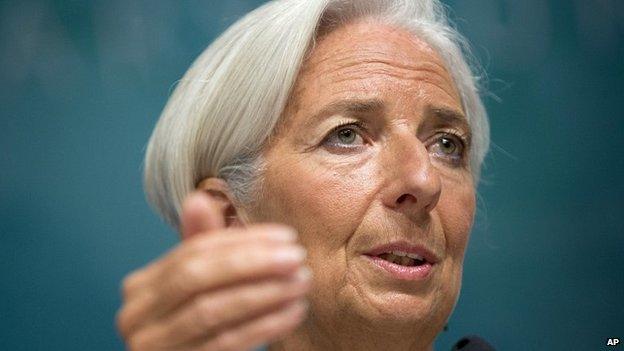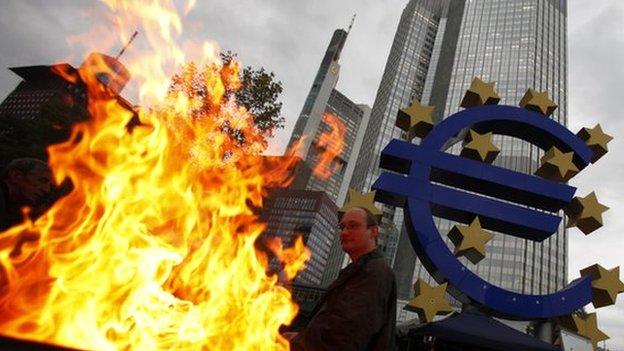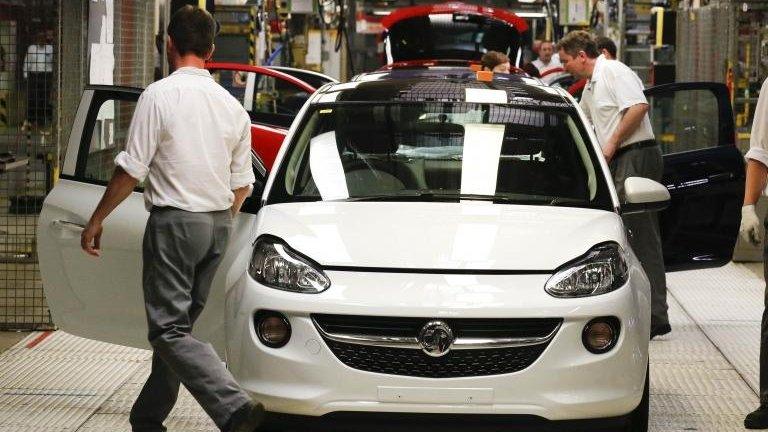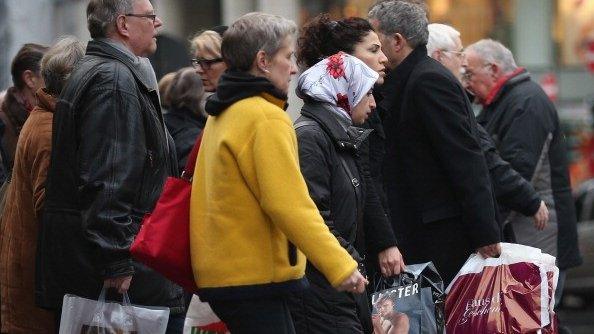Eurozone recovery not strong enough, says IMF
- Published

The IMF, headed by Christine Lagarde, says foundations for a recovery have been laid but more must to done
The recovery in the eurozone is not strong enough, according to the International Monetary Fund (IMF).
That's the assessment IMF head Christine Lagarde is delivering to eurozone finance ministers at a meeting in Luxembourg.
The IMF also says the European Central Bank (ECB) should consider buying financial assets with newly created money, if inflation remains low.
But the IMF's regular eurozone health check sees some signs of progress.
"Strong policy actions have laid the foundations for economic recovery," it says.
'Worrying'
However, it also says that the recovery is not robust, and that economic activity is still below pre-crisis levels. Some countries, including Germany and France, have got back to those levels, though the eurozone as a whole has not.
The IMF says much higher growth is needed to bring down unemployment and debt.
It describes inflation as "worryingly low, including in the core countries". The most recent figure, for May, is 0.5% for the eurozone, with Germany (0.6%) and France (0.8%) not much higher.
There has been mounting concern that the eurozone might face deflation or falling prices, which can do serious economic damage.
There is a welcome for the recent actions taken by the ECB. But the IMF says it should be prepared to do more if inflation stays very low. In particular, it should consider a large-scale asset purchase programme. That means quantitative easing (QE), the policy already used in an attempt to stimulate stronger growth by central banks in Britain, Japan and the United States.
The IMF says that if the ECB does introduce QE, the assets purchased should be mainly government debt or bonds from across the eurozone, using a formula that would mean buying more German debt than any other country's.
Such a programme, the IMF says, "holds the potential to have a significant impact on demand and inflation".
'Concerted effort'
The ECB has at an earlier stage in the crisis bought government bonds, but its purchases were targeted at countries where interest rates for firms and households remained higher than the Bank wanted - such as Greece and Spain.
It also took other steps that at least made its actions look less like QE - it basically "sterilised" the purchases by getting banks to deposit money at the ECB.
Eurozone governments need to press ahead with reforms to improve the labour market and to enhance competition in goods and services markets, the IMF says. They also need to make progress with banking union.
The IMF's general conclusion is that: "Concerted policy efforts are needed to strengthen the recovery".
Perhaps the trouble with that is that eurozone governments have tended to take concerted action when they seem to face imminent disaster. The weak recovery underway means that is not currently the case.
- Published5 June 2014

- Published22 May 2014

- Published15 May 2014
